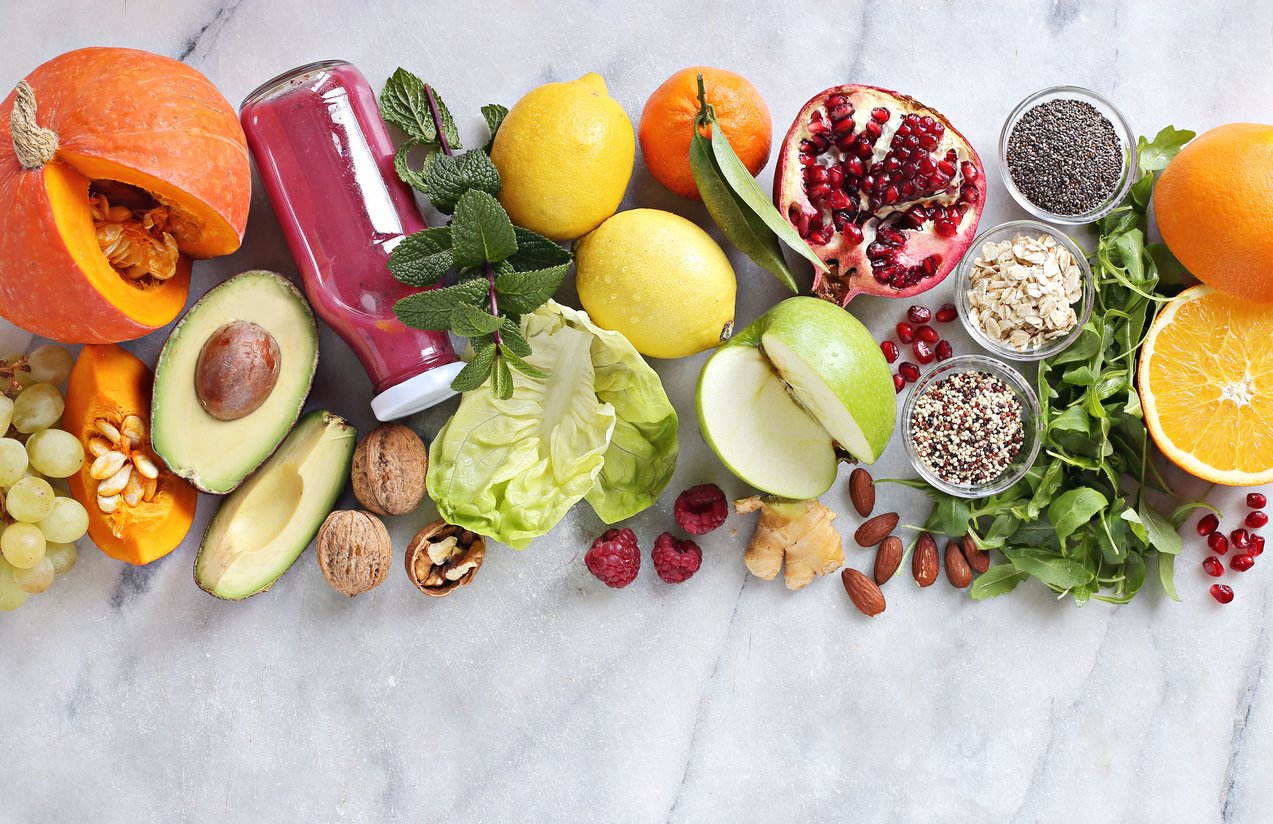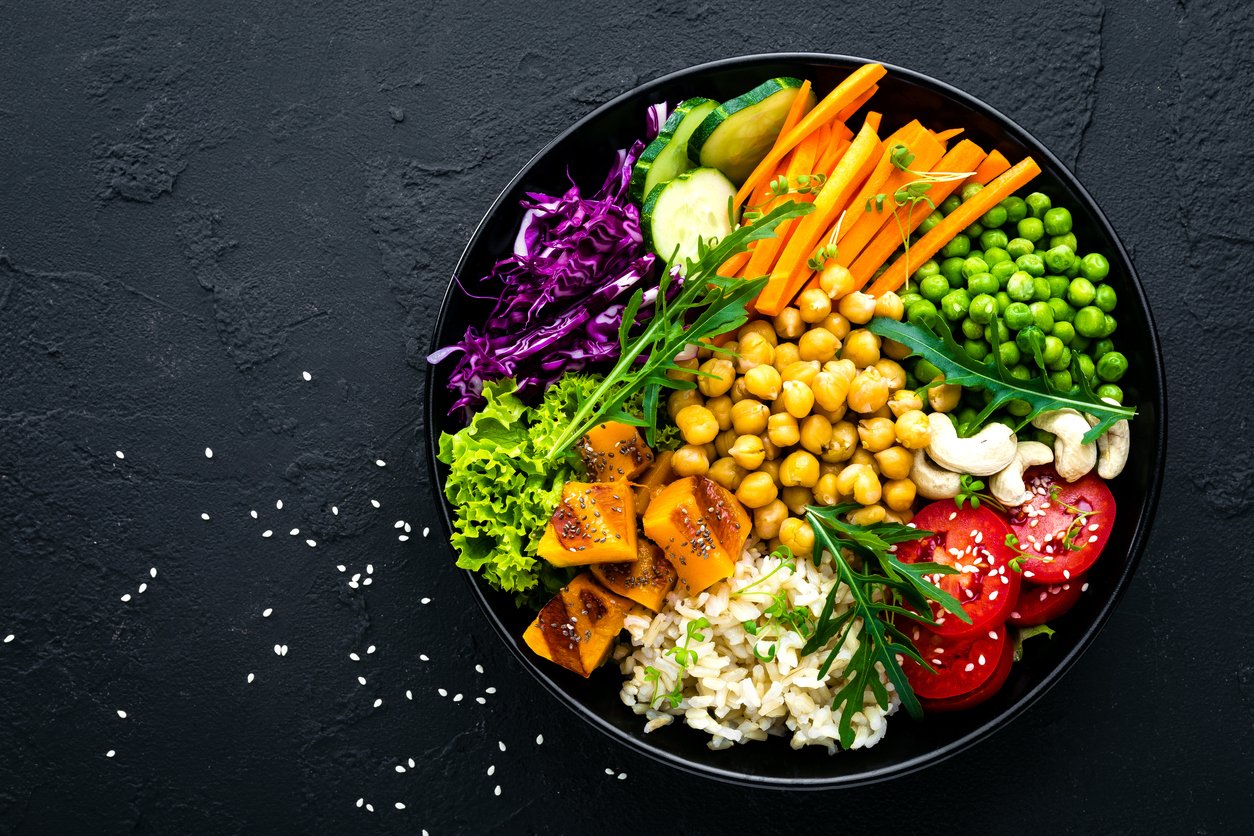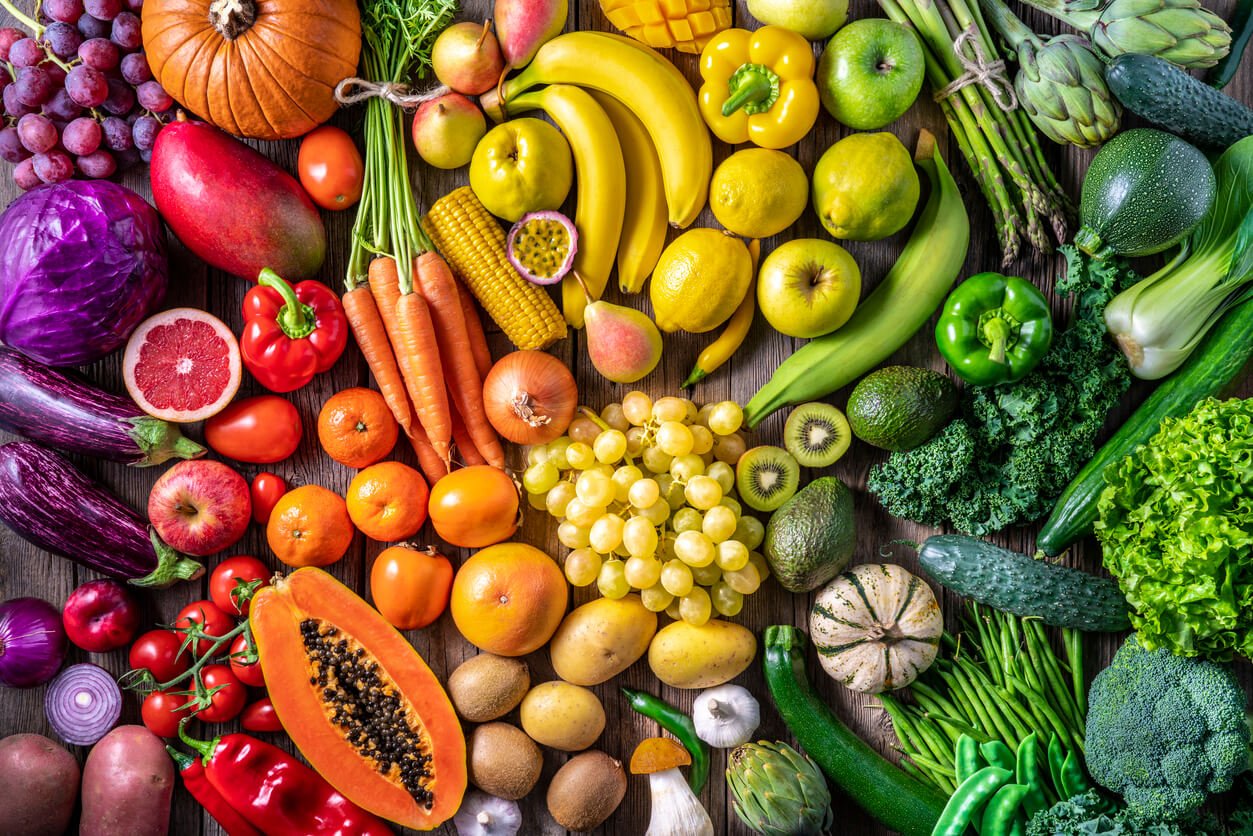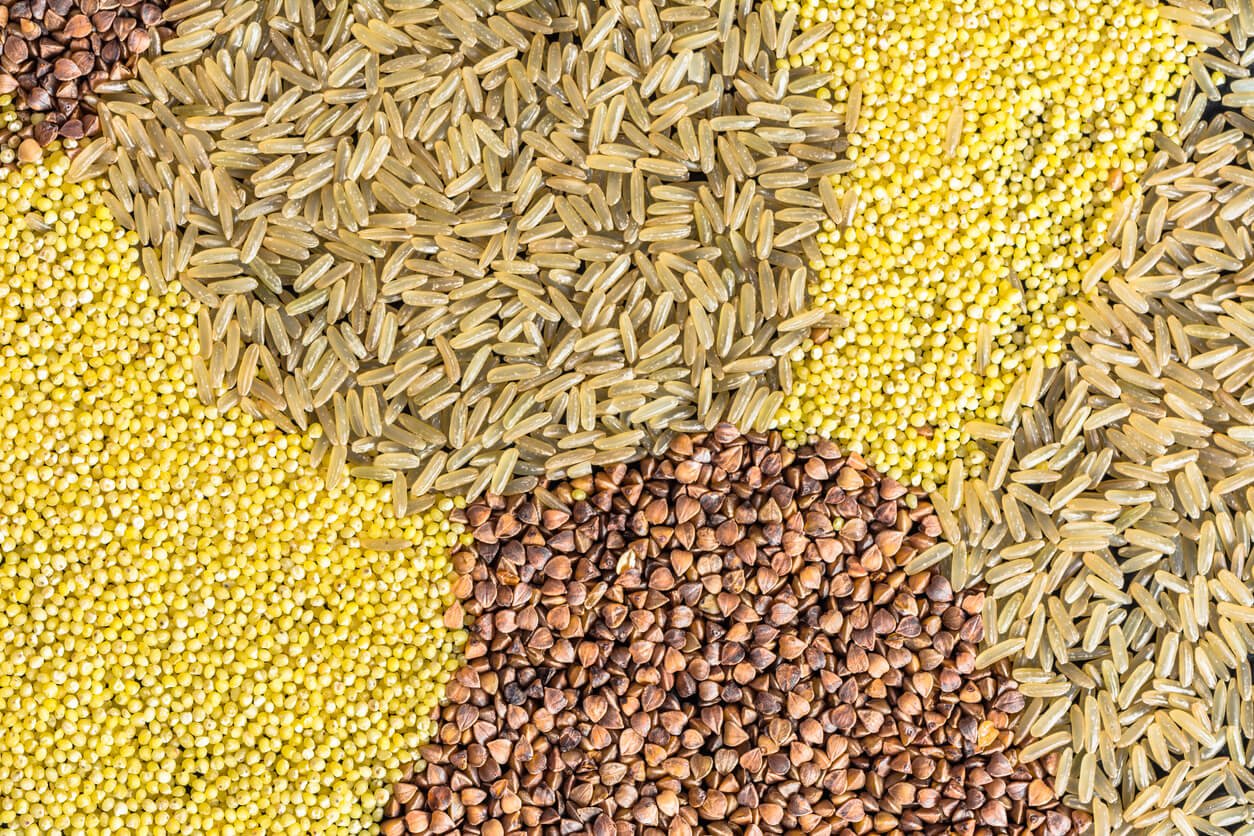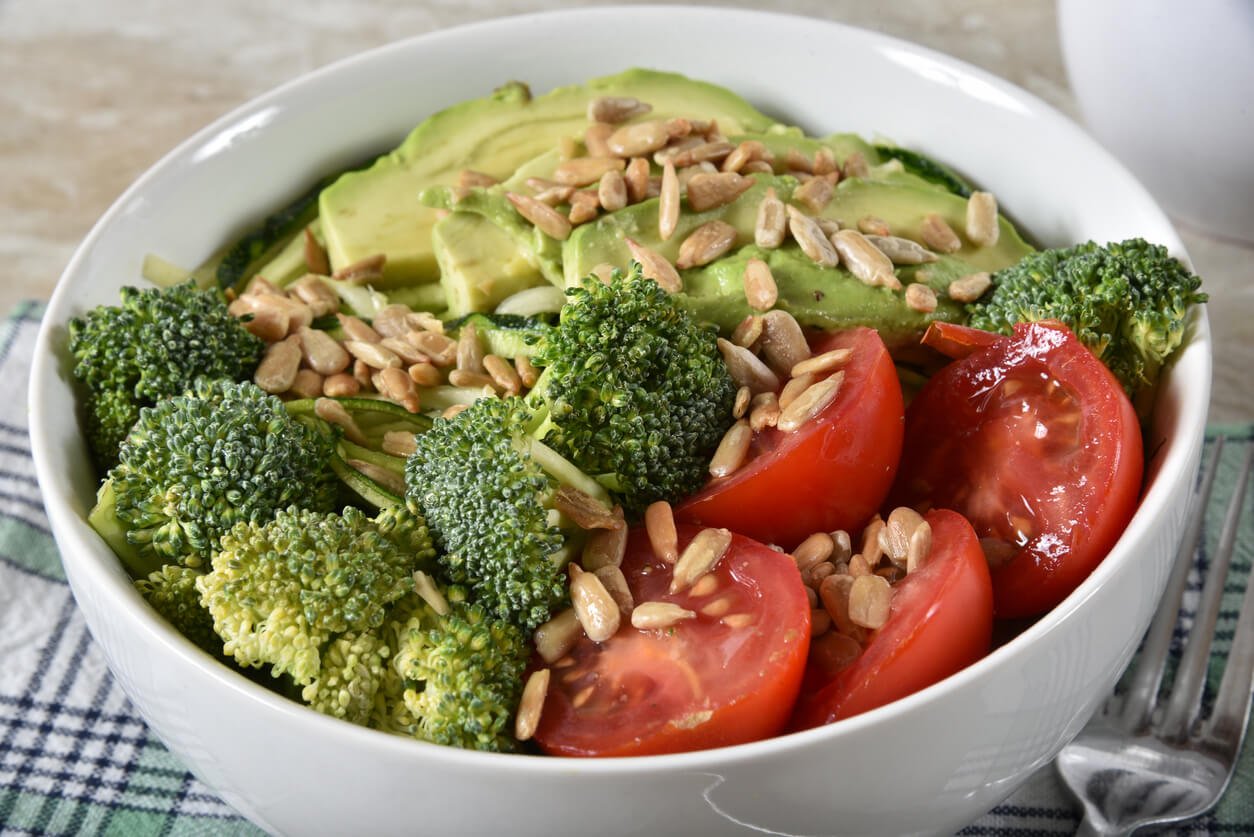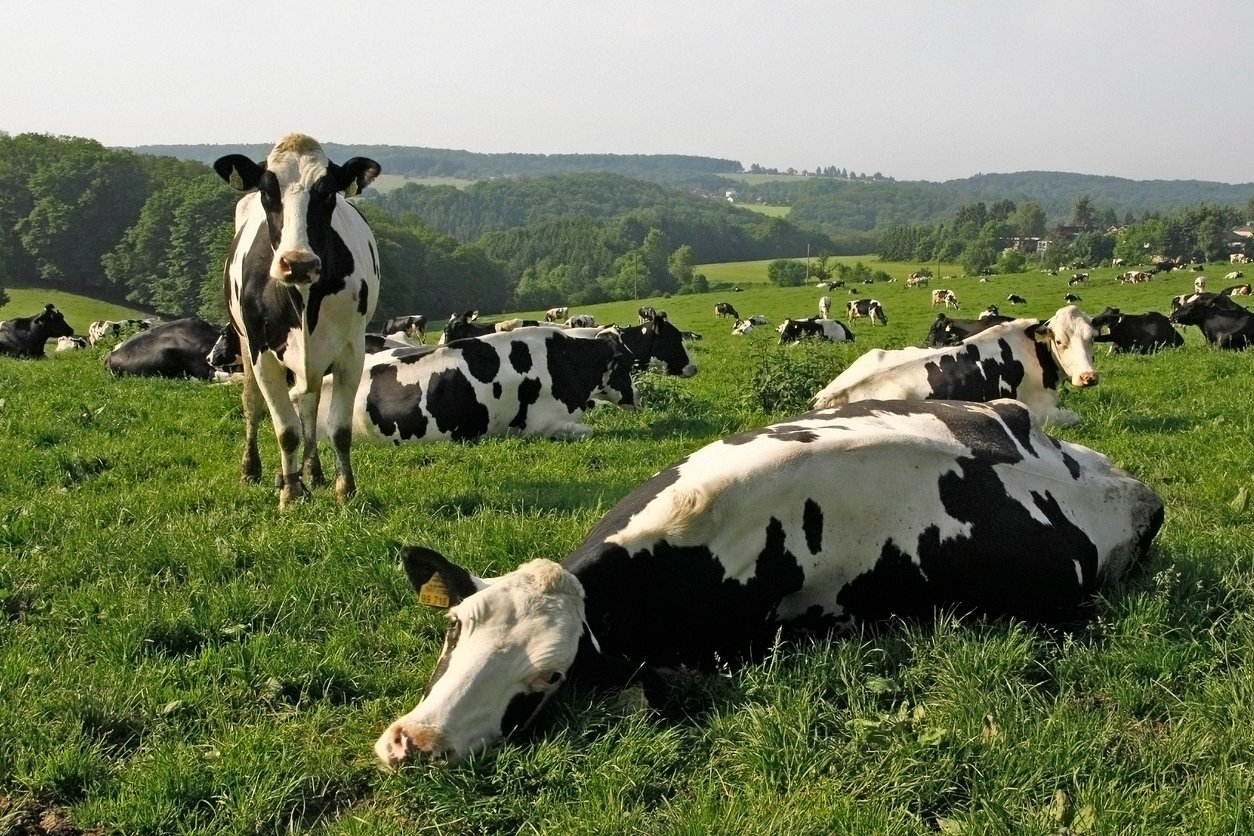Are you ever confused by all the conflicting theories about what trendy diet is the best or healthiest? That’s not an accident: The food industry makes the vast majority of its profits selling unhealthy junk. And the more confused we are, the more likely we are to throw up our hands and “go with the flow.” And so they often profit from reversals (“Butter is Back,” “Why Champagne is Actually Good for You“) that contradict what we were told last year.
In the age of online advertising and clickbait headlines, the media knows that “Bacon is Actually the Fountain of Youth” will get a lot more attention than “Broccoli is Good For You.”
It’s easy to see why most people believe that we don’t know much about food and health. Keto? Vegan? Mediterranean? Paleo? Atkins? Raw? “Aw heck, I’ll just have a cheeseburger and a beer and call it a day.”
The truth, very well hidden behind the noise and the marketing, is that nearly every serious scientist and research organization in the world recommends a diet rich in whole plant foods that are minimally processed. We can argue about the details (oil or oil-free, the majority of calories from grains or from vegetables, raw or cooked), but the basic idea — clearly stated by best-selling author and journalist, Michael Pollan, as “mostly plants” — is pretty much irrefutable once you look at the evidence.
Why Have Plant-Based Diets Become Popular?
Plants are full of the richest sources of nutrients the human body needs in order to thrive. Fruits and vegetables, in particular, provide us with antioxidants, phytochemicals, flavonoids, fiber, enzymes, and essential vitamins and minerals. In other words, a plant-based diet’s benefits come from all the good stuff our bodies need to be healthy and strong.
There’s also an overwhelming amount of research showing that eating more plants and fewer animal products can help prevent or even reverse many of the worst chronic ailments of our time. And if that’s not motivating enough, plant-based diets benefit the environment, too. Plant-based eating puts a dent in climate change and reduces the incidence of animal suffering and cruelty.
That’s a lot of upsides, right?
It’s no surprise then, that interest in adopting a plant-based lifestyle has skyrocketed in the last few years. According to a recent food and health survey conducted by the International Food Information Council Foundation, over half of US consumers are interested in learning more about plant-based eating. And sales of plant-based meats and dairy products are growing exponentially — even outperforming their animal-based counterparts in some cases.
Are you curious about what exactly a plant-based diet is, how to get started, or how to make it stick? If so, you’ve come to the right place. We’ve created this handy guide to going plant-based, so you can have all the information you need, right at your fingertips.
What Is a Plant-Based Diet?
Eating a plant-based diet means getting most or all of your calories from fresh, whole plant foods that are minimally processed (or even better, not processed at all). Essentially, it is exactly what it sounds like — a diet made of mostly plants.
A plant-based diet can also be vegetarian or vegan, but these diets aren’t necessarily outright plant-based. There are plenty of “junk food vegans” who might not eat animal products, but still consume a variety of processed foods.
To quote Michael Pollan, “If it came from a plant, eat it. If it was made in a plant, don’t.”
What Can You Eat on a Plant-Based Diet?
When picturing what a plant-based meal looks like, fruits and vegetables probably come to mind. And they’re an important part of just about any healthy diet. But you’re not limited to these foods. There are a wide variety of foods to enjoy on a plant-based diet.
The major types of food typically eaten on a plant-based diet include:
- Fruits ― Ex: Apples, berries, kiwis, mangoes, avocado, bananas, jackfruit, etc.
- Vegetables ― Ex: Onions, broccoli, beets, potatoes, mushrooms, carrots, etc.
- Whole grains ― Ex: Quinoa, millet, buckwheat, wheat, rice, corn, etc.
- Beans & legumes ― Ex: Black beans, chickpeas, lentils, edamame, peas, etc.
- Nuts & seeds ― Ex: Almonds, cashews, chia seeds, flaxseeds, walnuts, etc.
- Herbs & spices ― Ex: Turmeric, cinnamon, ginger, oregano, garlic, cayenne, etc.
- Fermented foods ― Ex: Kimchi, sauerkraut, miso, natto, etc.
Eating across all these food groups will help you get an abundance of micronutrients from your food. Also, when choosing from each category, think “eat the rainbow.” Colorful plant foods are full of phytochemicals (a fancy word that just means “chemicals from plants”) and antioxidants that are good for keeping different parts of your body healthy.
Another easy way to eat the healthiest combination of plant foods is by remembering an acronym coined by Dr. Joel Fuhrman: G-BOMBS. G-BOMBS stands for: greens, beans, onions, mushrooms, berries, and seeds.
What to Avoid on a Plant-Based Diet
When choosing to eat plant-based, you’ll want to focus mainly on fresh, whole foods. In a grocery store, that means primarily shopping the outer aisles. If possible, choose organic foods as much as possible to avoid exposure to GMOs and pesticides.
For more information on pesticides in produce, guidance on the most important foods to buy organic, and how to wash fruits and vegetables, see our article here.
However, the main foods to avoid on a plant-based diet are:
- Most or all animal products (Especially factory-farmed meat, eggs, & dairy products)
- Refined sugars (White sugar, cane sugar, high fructose corn syrup, chemical-based calorie-free sweeteners, etc.)
- Highly processed vegetable oils (Corn oil, cottonseed oil, sunflower oil, peanut oil, soybean oil, etc.)
- White flour (Especially bleached white flour which is full of chemicals and heavy metals ― and virtually devoid of nutrition)
- Junk food (Including most cookies, chips, crackers, snack bars, sweetened drinks, packaged foods, etc.)
- GMOs (The primary bioengineered crops are corn, soy, canola, sugar beets, cotton, and alfalfa ― plus some apples, zucchini, and potatoes)
You’ll also want to pay special attention to nutrition labels. By reading labels, you can avoid ultra-processed and harmful ingredients. Packaged foods should have as few ingredients as possible. As a general rule, if you can’t pronounce an ingredient, or don’t know what it is, put the food back.
Many packaged foods are full of health claims like “all-natural” or “non-GMO.” But most of these phrases are branding tactics meant to mislead consumers into thinking a product is healthy. This is called “greenwashing.” To learn more about greenwashing and what seals and certifications you can actually trust, read our article here.
Can You Eat Gluten or Grains on a Plant-Based Diet?
For most people, whole grains can be part of a healthy, plant-based diet. Some of my favorite grains are quinoa, millet, amaranth, buckwheat, oats, and teff. In many studies, whole grains have been shown to help fight heart disease, type 2 diabetes, cancer, and even obesity. But not everything is peachy in grain land.
While some grains are grown organically, most are sprayed with pesticides. And some crops, especially wheat, may even be treated with glyphosate as a desiccant (to dry the crop out before harvest). Corn is often genetically engineered. Then there’s rice, which, while popular, is often contaminated with a disturbing amount of arsenic.
For some medical conditions, like autoimmune diseases, grains can also cause inflammation in the gut and contribute to symptoms. This is especially true with the gluten present in wheat. Although only about 1% of the world’s population has diagnosed celiac disease, many more show signs of gluten intolerance with symptoms like headaches, joint pain, skin problems, seizures, and digestive issues. If you’re facing any of these symptoms, it can be helpful to go gluten-free for three to six months and see if they clear up.
While many people have jumped on the gluten-free bandwagon, that doesn’t mean it’s necessarily best for everyone. A few studies actually show health benefits from eating whole grain wheat products. (For more on this topic, see our article on gluten.)
Can You Get All the Nutrients You Need on a Plant-Based Diet?
It’s like, you could eat fast food for every meal for 10 years and nobody will bat an eye. But trade a fried chicken meal for a green salad topped with sunflower seeds, and everybody suddenly worries about you shriveling up and wasting away.
You may hear, “Why are you eating that?” Or, “Why aren’t you eating that?” But some of the most frequently asked questions you might encounter on a plant-based diet have to do with nutrients. “Where do you get your protein?” Or “Where do you get your calcium or iron?” In their July 2019 meetings, the meat, dairy, and egg industries rolled out a new propaganda playbook of the Dietary Guidelines Advisory Committee of the US government. Their goal? Scare people into eating lots of animal products for fear of choline deficiency.
Many people believe you can’t get all the nutrients you need without animal products. But plants have protein, calcium, and iron in abundance, in addition to a host of other vitamins, minerals, and antioxidants. (And yes, many plants are abundant sources of choline.) But these days, people are far more likely to be deficient in fiber than protein: Only 3% of Americans get their daily amount of recommended fiber. But that’s not a problem when you’re eating mostly plants!
Still, if you’re wondering how much protein, iron, or calcium you really need, and what plant-based foods to get them from, check out the articles below.
- Protein: Plant-Based Protein: What You Need to Know
- Calcium: The Healthiest Way to Get the Calcium You Need + 9 Calcium-Rich Foods
- Iron: The Truth About Iron + Why Plant-Based Foods Are the Best Way to Get the Iron You Need
Are Supplements Necessary?
No matter how you choose to eat, in the modern world, most diets are lacking in something. In the case of plant-based diets, there are a few nutrients that are especially important to pay attention to.
Supplements you may need on a plant-based diet are:
In the case of these nutrients, supplements may be necessary to avoid a deficiency.
For more on why you might need to supplement these nutrients and how much you may want to take of each, see our article, here.
Plant-Based Diet Benefits for Your Health
Eating the right foods and getting the nutrients your body needs are essential to good health. And adopting a plant-based diet will put you on the fast track to health and vitality.
Rates of chronic disease are accelerating at an alarming rate. And it’s happening to people younger and younger. Sadly, according to the World Health Organization (WHO), noncommunicable chronic diseases account for almost three-quarters of all deaths worldwide. This includes diseases like cancer, heart disease, type 2 diabetes, Alzheimer’s, autoimmune disease, and digestive disorders, among many others.
But thanks to the research of plant-powered pioneers like Dr. Dean Ornish, Dr. T. Colin Campbell, and Dr. Caldwell Esselstyn, we now know that most chronic diseases are lifestyle-related. And that diet is a stronger predictive factor in chronic disease than genetics. Many people are turning to a plant-based diet to not only prevent chronic disease, but also to slow its progression and, in some cases, even to reverse it completely.
Adopting a plant-based diet benefits many aspects of health, including the following:
Heart Disease
Plant-based eating can positively benefit those with cardiovascular disease. In Dr. T. Colin Campbell’s China Study research, he found that the more plant protein, legumes, and vegetables people ate, the less likely they were to die of coronary artery disease.
Dr. William Li also found that by eating more fruits and vegetables and less meat (particularly red meat) you can prevent damage to the cells that line and protect your blood vessels. In the last few decades, science has discovered that damage to this endothelial lining causes different types of heart disease and atherosclerosis.
For more on how a plant-based diet benefits heart health and what foods to eat to beat heart disease, check out our article.
Type 2 Diabetes
Replacing animal protein with plant protein has a profoundly positive effect on people with type 2 diabetes. When researchers reviewed and analyzed the data from 13 randomized controlled trials, they found a decrease in three important markers of diabetic severity — hemoglobin A1c, fasting glucose, and fasting insulin — when switching from animal protein to plant protein.
Dr. Neal Barnard also conducted a study on the effects of a low-fat vegan diet on people living with type 2 diabetes. He showed that eating this way improved weight loss, blood sugar control, and triglyceride levels compared to the diet recommended by the American Diabetic Association.
While many people mistakenly believe that diabetes is caused by sugar alone, we are coming to understand the role saturated fat plays in its development. When type 2 diabetics stop eating meat (a major contributing source of saturated fat), their blood sugar levels typically improve.
To find out the specific foods to eat and avoid for type 2 diabetes prevention (and reversal), read our article here.
Learn what brand-new scientific research says about how to prevent and reverse type 2 diabetes — using food and free lifestyle tips.
Join the FREE
Watch Here
Alzheimer’s & Neurodegenerative Disease
Believe it or not, even people with Alzheimer’s disease and other neurodegenerative conditions can benefit from a plant-based diet. While there are few documented cases of reversal, most are preventable. In fact, a comprehensive report conducted by husband and wife team, Drs. Dean and Ayesha Sherzai, concluded that over 90% of Alzheimer’s cases are preventable.
Much of this prevention is achievable with lifestyle strategies, and whole foods, plant-based nutrition is one of the most consequential strategies of all. Additional research has shown that this may be due in part to the brain-gut connection. A poor diet disrupts the gut microbiota, contributing to inflammation in the body and affecting the central nervous system and, ultimately, the brain. One study found that inflammation, gut dysbiosis, and leaky gut may contribute to the process of neurodegeneration in Alzheimer’s patients.
For more on how diet affects Alzheimer’s and brain health, check out this article by Dr. Michael Greger.
Cancer
Did you know that plant-based diets may help prevent cancer, too? A 2011 study in Cancer Management and Research concluded that plant-based diets (including vegan and vegetarian ones) are a useful strategy to reduce your risk of cancer. Specifically, the increased intake of plants, elimination of red and processed meats, and maintenance of a healthy body contributed to a reduction in cancer.
Four plant foods that show particularly potent anticancer effects are:
Nuts
A major study published in the New England Journal of Medicine showed that people who ate nuts significantly reduced their risk of cancer (and overall mortality) compared to people who ate few or no nuts. Additionally, the American Society of Clinical Oncology released a report of more than 800 patients with stage III colon cancer. They found that eating nuts can make a significant difference in overall cancer survival. In the study, those who consumed about two small handfuls (about two ounces) of tree nuts per week had a 42% lower chance of cancer recurrence and a 57% lower chance of death than those who did not eat nuts.
Cooked Tomatoes
The cancer-fighting power of tomatoes may be attributable to lycopene, a cancer-starving antioxidant. Studies show that men who eat two to three cups of cooked tomatoes twice weekly have a 30% lowered risk of prostate cancer.
Purple Potatoes
Once a food of the Incan kings, purple potatoes contain a natural chemical called anthocyanin, which starves and kills cancer cells — and wipes out the dreaded cancer stem cells. Purple sweet potatoes are also a staple food in Okinawa, Japan, one of the Blue Zone regions of the world, where some of the longest lived and healthiest people reside.
Mushrooms
Researchers from the University of Western Australia in Perth conducted a study of 2,000 Chinese women. (About half had suffered from breast cancer.) The scientists reviewed the women’s eating habits and factored out other variables that contribute to cancer, such as being overweight, lack of exercise, and smoking. They came to a startling discovery about mushrooms. Women who consumed at least a third of an ounce of fresh mushrooms every day (about one mushroom per day) were 64% less likely to develop breast cancer.
Obesity
Rates of obesity are at an all-time high around the world. In the US alone, over 39% of the population is suffering from obesity. Eating a plant-based diet helps fight obesity, too.
A 16-week randomized clinical trial showed that a plant-based vegan diet contributes to a reduction in body weight, fat mass, and insulin resistance. And a study published in the British Journal of Nutrition concluded that each additional year of adopting a vegan diet decreased the risk of obesity by 7%.
Immunity
Eating more plants and fewer animal products may also improve your immunity, protecting you from bacterial and viral infections, as well as excess inflammation.
A 2018 study looking at the impact of a vegetarian diet on the gut microbiota and immune system found that eating a plant-based diet long-term was associated with more beneficial gut bacteria and had an anti-inflammatory effect in the body. About 70–80% of your immune system is found in your gut, so feeding the good gut bacteria with plant-based nutrients like fiber naturally benefits immunity too.
Since the emergence of SARS-CoV-2, research has also been done showing the impact of a plant-based diet on COVID-19 outcomes. One study in BMJ concluded that plant-based diets were protective against severe cases of COVID-19 and lowered the odds of contracting COVID-19 overall. Other studies have shown higher fruit and vegetable intake has a positive effect on the development of upper respiratory tract infections in general, so perhaps this should not come as a surprise. Still, it’s nothing to sneeze at!
Plant-Based Diet Benefits to the Environment
Adopting a plant-based diet isn’t just good for your health, however; it’s also good for our planet.
Eating Plant-Based Uses Less Water and Land
Broadly, agriculture is the biggest consumer of water worldwide. But animal agriculture accounts for the largest chunk of this consumption. It takes over 20 times more water to produce a pound of beef compared to plant-based foods like fruits, vegetables, and legumes.
The vast majority of that water is not used for thirsty animals, but to irrigate the land growing their feed. Worldwide, about eight times as much land is used to grow food for animals as is used to grow food for humans. Huge tracts of forests are being cut down to make way for factory farms, areas for cows to graze, or fields to grow animal feed.
And cycling calories through livestock is much less efficient than eating them directly. It takes about 20 pounds of grain or soy to produce one pound of feedlot beef. For pork, it takes about seven pounds of feed to produce one pound of edible meat, and for chicken, about four. No wonder 70% of the world’s soy crop and 40% of the grain is being used as livestock feed.
Animal agriculture is, essentially, a protein factory in reverse.
If the world, just hypothetically, went plant-based, we’d free up 75% of the globe’s agricultural land — an area the size of the United States, Australia, the European Union, China, and India combined. That land could be used to grow food for a rapidly expanding human population, could be planted with trees or other vegetation to absorb carbon out of the atmosphere, could be returned to wildlife, or could be used for many other purposes.
A Plant-Based Diet Can Reduce Your Food-Related Carbon Footprint
Current practices in animal agriculture contribute significantly to global greenhouse gas emissions, too. And while CO2 is one major factor, it isn’t the only one. As National Geographic puts it, methane, the gas that comes “…out of a cow’s plumbing,” is even more efficient than CO2 at trapping heat. Twenty-eight times more powerful, to be exact. Not only that but in a world facing a potentially irreversible climate crisis, methane dissipates much more rapidly than CO2. That means changing your diet today will reduce your impact immediately. According to an Oxford University study, going vegetarian or vegan can cut your carbon footprint in half.
When you commit to eating more plants, and fewer animal products, you’re contributing to a more stable global climate. You’re also helping to build a world with more forests and less animal cruelty, with less topsoil erosion and more water for future generations.
For more information on the effects of factory farms and the ways a plant-based diet can affect the environment, check out some of these articles:
The Surprising Truth About Antibiotic Resistance & Factory Farms
Food and Water: What You Eat Matters for People & the Planet
Plant-Based Diet Guidelines to Get You Started
Now that you know all the benefits of a plant-based diet, how do you get started and put it into action? Here are a few strategies that will help you succeed, thrive, and get the support you need on your healthy eating journey.
1. Fill Your Plate with Plants
Approximately 55% of calories in the standard American diet come from processed foods, while another 33% come from animal products. While research has shown just how detrimental these foods are to your health, federal nutrition guidelines have yet to catch up. It wasn’t until 2011 that the USDA replaced their meat food group with a generic “protein” one. And while their MyPlate guidelines are certainly an improvement over past recommendations, it’s still not exactly the optimal balance of nutrition.
The Physicians Committee for Responsible Medicine created the Power Plate, which provides another take on what a healthy plate really looks like. Spoiler alert: It’s full of plants! The Power Plate recommends meals consisting of a balance between fruits, vegetables, legumes, and grains. Check it out here.
2. Invest in a Few Good Plant-Based Cookbooks
While there are certainly plenty of online recipes, it’s a lot easier just to open up a book than to search through thousands of recipes on the Internet. Cookbooks are a great way to have a library of recipes at your fingertips whenever you need them. And having a good cookbook on hand can provide guidance on pantry staples to have, along with tools you may need, common substitutions for animal products, or even further ways to modify a recipe if you have food allergies.
We’ve created a list of cookbook recommendations to get you rolling on your plant-based journey. Check them out here.
3. Plan Ahead
Making any kind of change in your life requires some degree of planning. This is especially true when choosing to go plant-based. It also requires time, which might already be in short supply for you. One way to combat this is by planning ahead with simple solutions that will help you prepare for each week of food.
Figure out a few recipes you want to make, and then create a shopping list of all the ingredients you’ll need. There are also many plant-based meal planners out there via subscription sites like 22 Days Nutrition or Forks Over Knives, or you can source them from cookbooks too.
Buying staple foods in bulk will also allow you to always have what you need and shop less often. From there, you can prepare meals in larger quantities so that you have food ready to go in your fridge or freezer. It also helps to prepare food the night before, so you have something to eat for breakfast and lunch the next day. Leftovers are your friends on a plant-based diet!
4. Communicate When Eating Outside Your Home
Eating out at restaurants, or when visiting friends and family, presents its own set of challenges.
Unless you’re going to a restaurant that specializes in vegan, vegetarian, or plant-based food, you may struggle with finding completely plant-based options. Let whomever you’re dining with know your dietary preferences and see if you can find someplace that suits you both. Use apps and websites like Yelp or Happy Cow to find plant-based eateries.
Looking at menus ahead of time can also help. And when at a restaurant, ask questions about food preparation methods and substitutions. Most restaurants will do their best to accommodate your request. For more on how to navigate plant-based eating at restaurants, click here.
Similarly, when going to parties and dinners with family and friends, let your host know your dietary needs ahead of time. In extreme circumstances, you could also offer to bring your own food or even to eat beforehand. Or click here for additional ideas on how to stick to your diet at social gatherings.
5. Take it One Step at a Time
If you decide to try a plant-based lifestyle, take it one step at a time. You may decide to go “cold turkey,” but you can also go slower if that feels easier and more sustainable to you. Go at the pace that feels right for you, as you add in new things and steer clear of others. What’s most important is that you keep taking steps for your health and the health of the planet — and then take more steps, as you build momentum. This isn’t about a diet or a fad. It’s about laying the groundwork for a new way of life. At the end of the day, it’s your habits that help to shape your destiny.
6. Find Support
Eating a plant-based diet means you may not be eating what everyone else is eating, and that can be lonely. But it doesn’t have to be. Find someone in your life to share your plant-based eating journey with. It could be your spouse, your children, or a friend. Let them know you’re choosing a new way of eating and that you’d appreciate their support on the journey. Let them know how they can help. Encouraging words, a sounding board, and adopting the lifestyle for shared meals can all help.
And Here’s Another Resource
To effectively implement a plant-based diet in your life, consider joining an online membership community, like Food Revolution Network’s own WHOLE Life Club. You’ll get trustworthy advice from leading experts in health and nutrition, help building healthy habits, and a welcoming, supportive community.
For more information about membership benefits, and to join the club now, click here.
We wish you all the best on your journey to a fabulous plant-based lifestyle. Here’s to your health!
Tell us in the comments:
- What do you think of plant-based diets?
- Have you ever tried one?
Feature Image: iStock.com/Los_Angela
